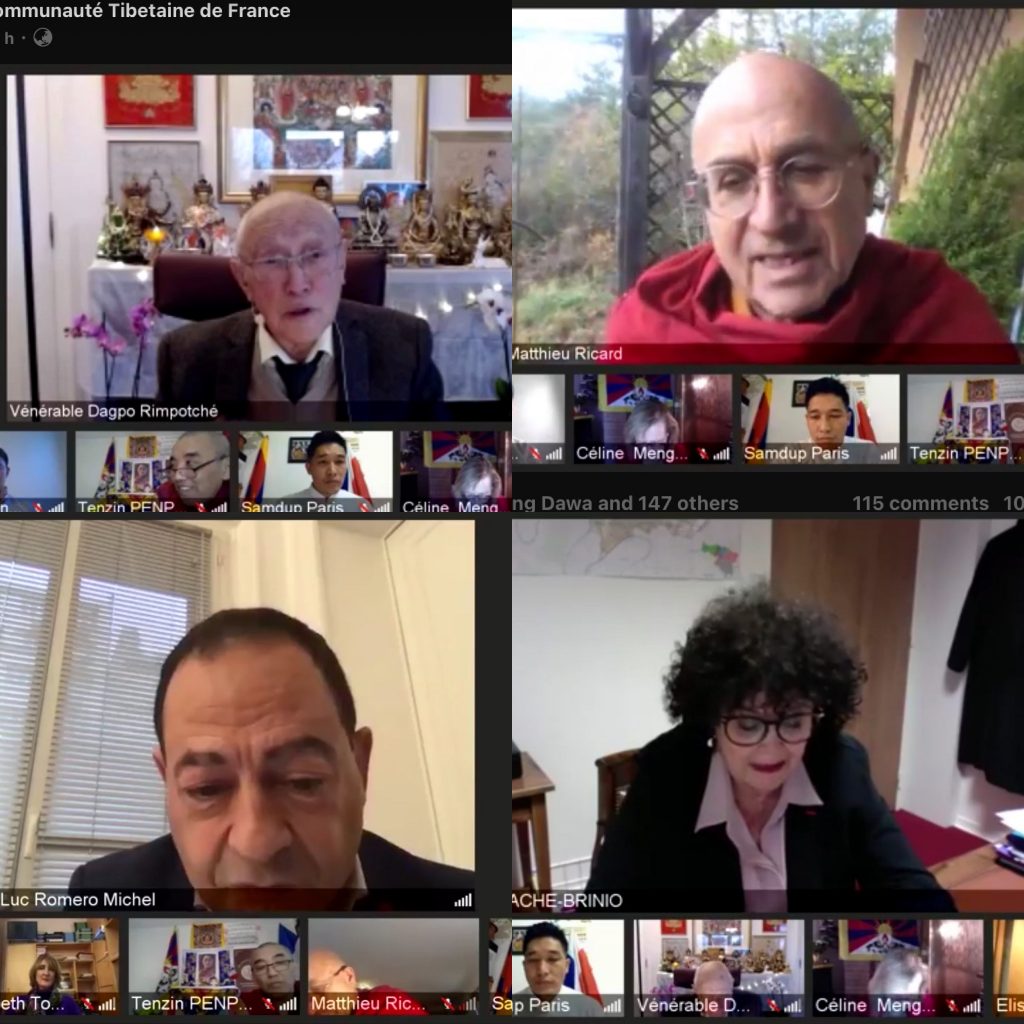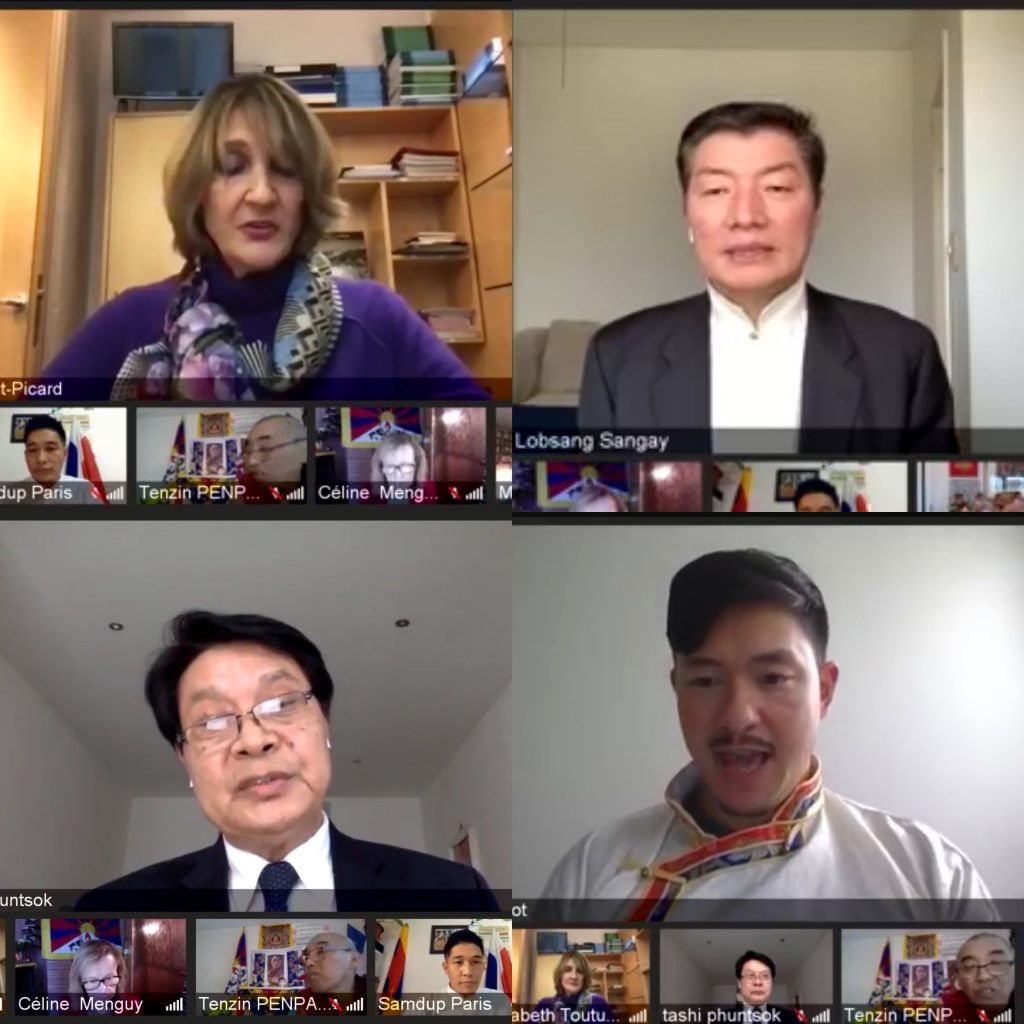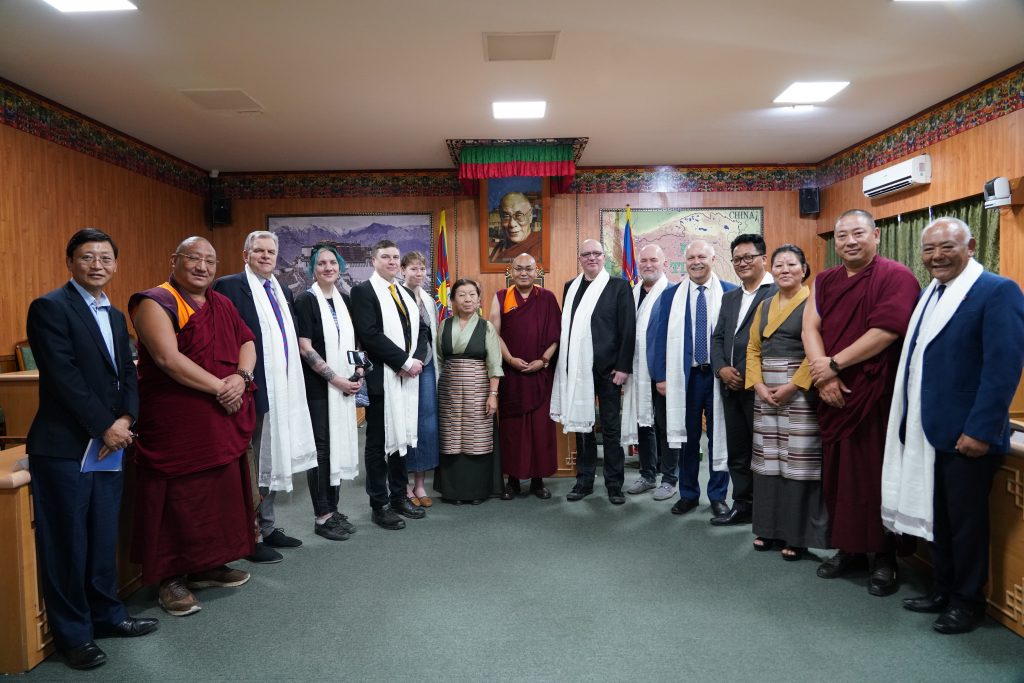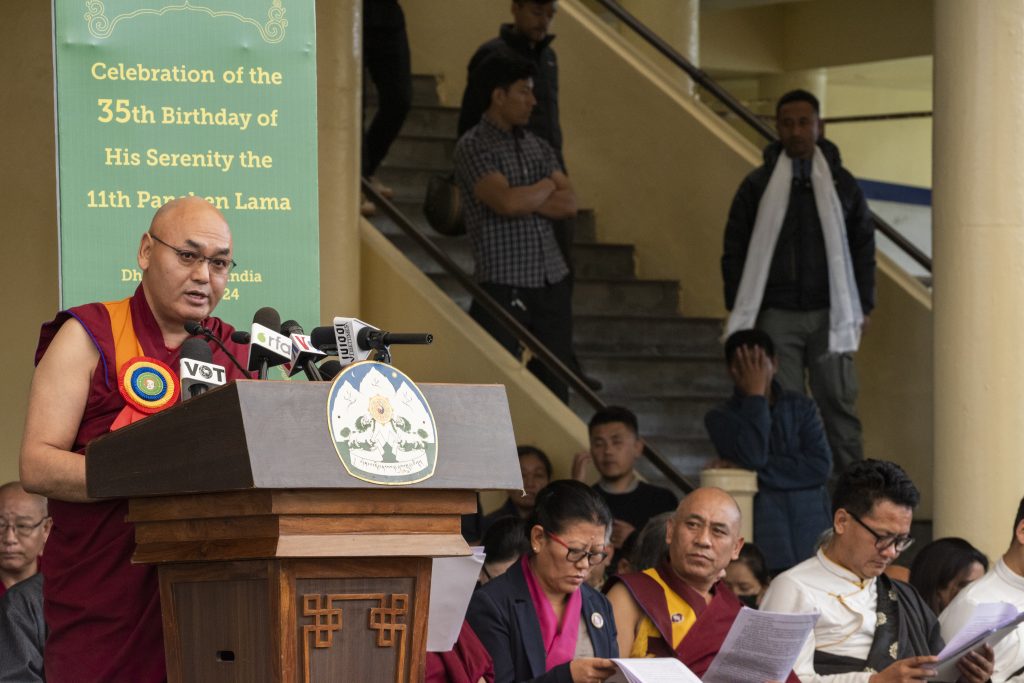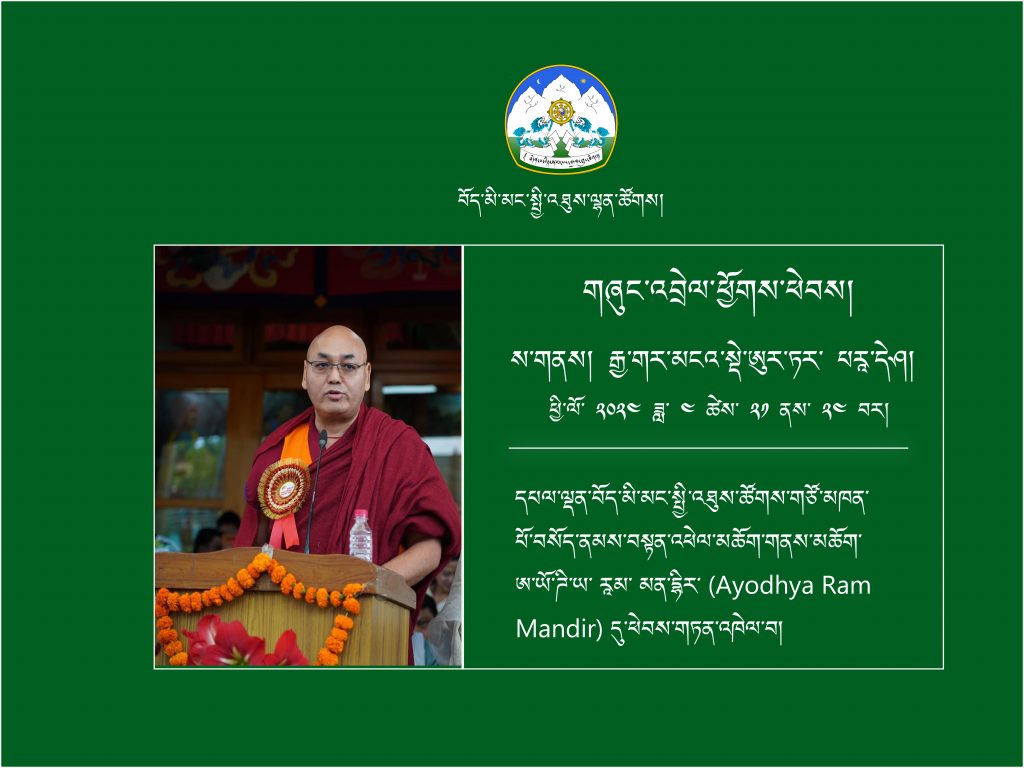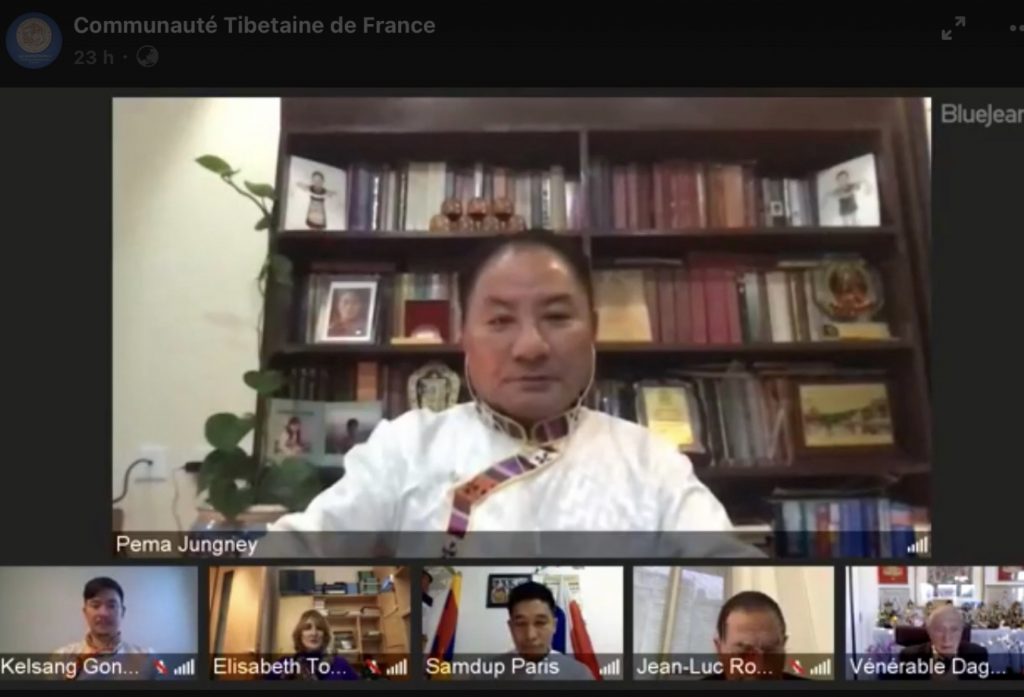
Dharamshala: Speaker Pema Jungney attended a virtual ceremony of the celebration of the 31st anniversary of the conferment of the Nobel Peace Prize on His Holiness the Dalai Lama organised by the Tibetan Community of France at 7 PM IST on 10 December, 2020. Venerable Dagpo Rinpoche, Venerable Matthieu Ricard, MP Elisabeth Toutut-Picard, Chair of the Tibet Study Group in the National Assembly, Senator Jacqueline Eustache-Brinio, Chair of the International Information Group on Tibet in the Senate, Jean-Luc Romero-Michel, Sikyong Lobsang Sangay, and Representative Tashi Phuntsok also participated in the virtual celebration.
As the year 2020 has been dedicated as a year of gratitude to His Holiness the Dalai Lama by the Central Tibetan Administration, the Speaker as requested by the organising committee spoke on the four commitments of His Holiness the Dalai Lama. Starting with the first commitment- as a human being, His Holiness’s wish to encourage other humans to be happy- the Speaker emphasised on the fact that everyone desires happiness and despises suffering irrespective of the differences in one’s religious belief. In order to gain that happiness and to avoid suffering, one must learn to recognise the causes of happiness and that of suffering. Self-attachment and enmity towards others are the causes of suffering, whereas happiness comes from values like altruism. Unlike other beings, humans have wisdom to bring happiness as well as suffering to humans and other beings, therefore wisdom of human beings should be utilised properly only with ethical values through cultivating compassion and warm-heartedness.
Speaker further quoted Indian Buddhist scholar Chandra Kirti’s root text’s the verse offering on the importance of compassion on the samsaric suffering, the cause of which is self-attachment. Therefore, in order to liberate oneself from this cycle of samsara one should follow the bodhisattva’s way of life by cultivating compassion, accumulate merits by cultivating compassion, and attain Buddhahood by cultivating compassion. As the modern education system is based only on exterior values and not on inner human values, people these days tend to have suffering related to stress majorly caused by pride, jealousy, etc. In order to develop basic human values in future generations, His Holiness the Dalai Lama has advocated an education system based on improving human ethical values through SEE Leaning programs in India, the US, Canada and through initiatives like Universal Responsibility, Ethics for New Millennium, Beyond Religion, etc.
Secondly, as a Buddhist monk, His Holiness is committed to encouraging harmony among the world’s religious traditions on the basis that despite having philosophical differences all the religions are based on compassion, self-discipline, tolerance, etc. All the religions aim to bring happiness and avoid suffering based on the individual practitioner’s wish and desire. Even the Buddha had preached as per individual’s disposition and inclination resulting in various traditions of Buddhism like Mahayana, Hinayana, and Vajrayana. Even though with differences in approach, different religious traditions for thousands of years in this world have strived for the same objective. Therefore, it is extremely important for all the religions to respect each other and maintain harmony to obtain one’s religious objective, as we all have witnessed His Holiness the Dalai Lama’s deep reverence to other religions by visiting different temples, mosques, churches, etc around the world.
Thirdly, as a Tibetan and the supreme leader of Tibet, His Holiness is committed in protecting Tibetans’ distinct language, culture, and religion. At the same time, He is committed to resolve the issue of Tibet and protect the environment. From the first day of coming into exile, His Holiness has tirelessly worked on these commitments by appealing to the UNO at different times, establishing Tibetan settlements, establishing separate Tibetan schools, consecutive Sino-Tibetan dialogues, speaking of Tibet’s issue in the west, introducing Middle Way Policy, establishment of Monasteries and Nunneries, etc. His Holiness has always been vocal on the importance of Tibetan language as Tibetan language is the life of Tibetan culture, moreover texts of Buddha’s words and their commentaries in more than 300 volumes are available only in Tibetan today. His Holiness has also advised on preserving traditional Tibetan medicine and promoting it with scientific evidence. Likewise, He has also spoken on environmental protection of the world and in particular of Tibet’s environment which is vital for the whole Asia from the environmental perspective.
Fourthly, as a follower of the ancient Indian knowledge of the Nalanda tradition of Buddhism and living in India for the last many decades, His Holiness the Dalai Lama is committed in reviving ancient Indian knowledge. In order to develop a compassionate world, the ancient Indian understanding of the workings of the mind and emotions, as well as the techniques of mental training, such as meditation, and ethical moral values, are of great significance. Buddhism can be broadly classified in Buddhism of science, Buddhism of philosophy, and Buddhism of religion (practice), the first two can be studied by any religious followers or non followers but the later one should be practiced by Buddhists.
